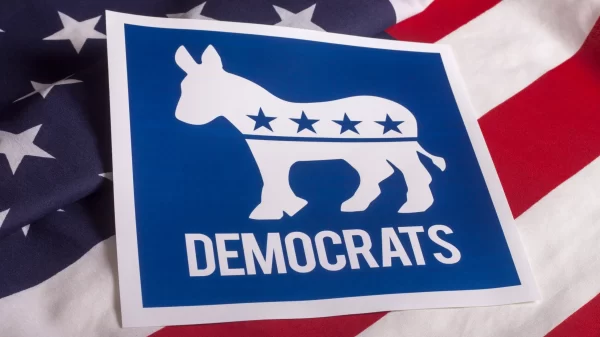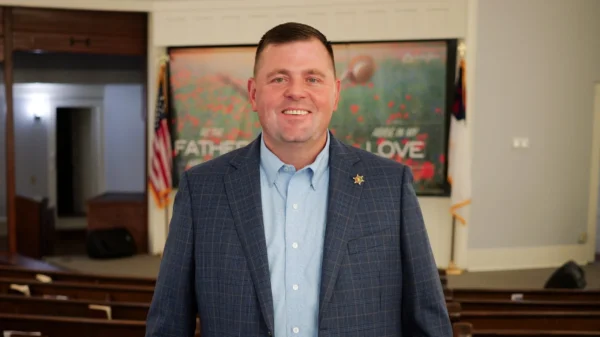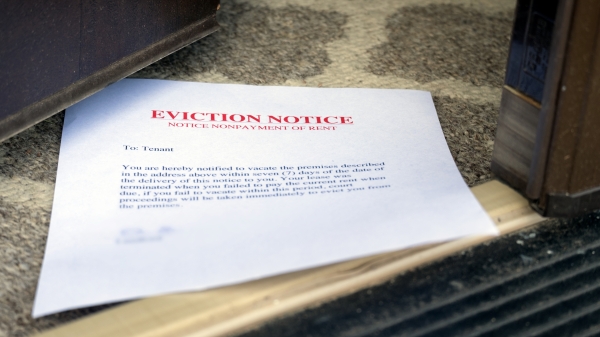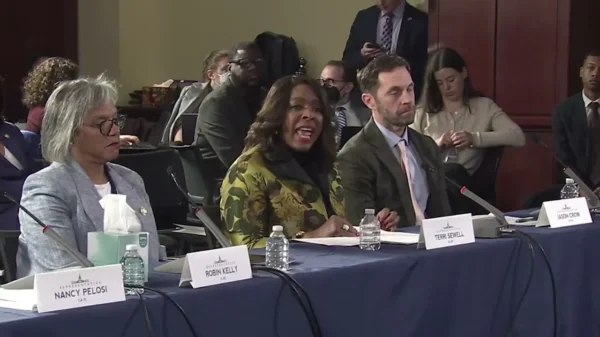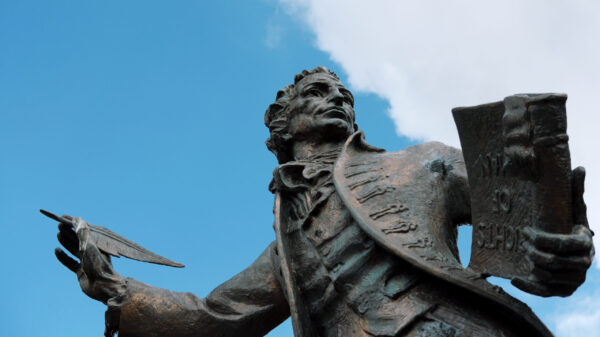The video would barely warrant a second glance in most other states. After all, it simply shows a person playing an online gambling game on a mobile phone – not exactly high controversy in 2022.
But in Alabama, where such games – and even some of the immovable, casino-floor versions of those games – are illegal, the video was spread all around the State House a few weeks ago. In a matter of days, in certain circles, it became a matter of near constant conversation.
“Oh, I think everyone has seen it by now,” said state Sen. Greg Albritton, one of the most active and knowledgeable lawmakers on gambling issues in Alabama. “It is the prime example of what we’ve been talking about for months – what so many people have their heads in the sand about.”
{{CODE1}}
To understand why the video has caused so much commotion, you have to first understand Alabama’s archaic – and, quite frankly, stupid – gambling laws. At least, you have to have a little understanding. A full understanding would take months.
So, let’s try it like this: Gambling is illegal in Alabama, except where it’s not.
Dog racing and horse racing, for example, are each legal in certain counties at certain venues. Same for bingo.
And in the eyes of some people, including a number of circuit court and appellate-level judges, same for electronic bingo.
You might be familiar with the “gambling raids” of the Gov. Bob Riley era in the 1990s. They speak to the murky nature of the legality of electronic bingo. One year, Riley was handing an electronic bingo casino owner an award for being a top businessman in Alabama. The next, he was declaring the casino owner an outlaw and raiding those businesses he previously praised.
In between those two acts, absolutely nothing changed. No laws were passed or amended. No judge issued an unfavorable ruling for the casinos.
So, as it stands, the counties of Greene, Macon and Lowndes have bingo amendments that were passed in the years after electronic bingo came into existence. And the campaigns for those amendments were specifically about the electronic version of the game.
Those counties have fought to keep their casinos open and active, because their local governments rely heavily on the tax revenue they generate.
For much of the time since Riley’s raids, the casinos in operation have toed the line, sticking to operating games that were deemed legal by the federal government and abiding by laws as interpreted by the local sheriffs (who are named in the Alabama constitution as the top law enforcement officials governing gambling in each county).
GreeneTrack in Greene County, VictoryLand in Macon and White Hall and Southern Star in Lowndes have each spent hundreds of thousands of dollars changing out bingo machines, purchasing software and updating software in an effort to stay in compliance with what courts and sheriffs deemed to be the law.
Generally speaking, their games are identical to the ones played at the Poarch Band of Creek Indians’ facilities in Atmore, Wetumpka and Montgomery. Those machines are approved by the federal government and must meet certain standards.
And all of that is what makes the aforementioned video so noteworthy.
Because the activity in that video is decidedly not legal and does not fall in line with the games that meet federal approval. In fact, mobile gaming is still a hotly debated topic in states where full casinos have been approved and operate.
The video, though, is a prime example of the unsanctioned expansion of gambling that is happening around Alabama. A number of questionable gambling facilities have popped up across the state in recent years, and in Greene County specifically, there has been a massive expansion of charity electronic bingo facilities. Some of these facilities have questionable ties to charities, and some of the charities are suspiciously newly formed.
The video in question appears to have originated from one of the Greene County facilities, The Palace, and it appears to show gaming that doesn’t meet the standard definition of electronic bingo.
According to a source familiar with the video, a customer went inside the casino, presented their specific player information and had their money and player ID entered into the gaming website. At that point, the player said the games could be played offsite using the money deposited into the account.
Attempts to reach a spokesperson for The Palace were unsuccessful. The web address visible on the video is for a registration page on The Palace Bingo’s website.
“I hope everyone understands that the expansion of gambling in this state is happening right before our eyes – with us or without us,” Albritton said. “This is precisely why a comprehensive approach is necessary.”
The Alabama Attorney General’s Office told APR that it is aware of the video. However, per standard practice, a spokesperson said he wouldn’t confirm or deny an active or potential investigation into the matter.
Asked if the state lacked reasonable laws to stop such gambling activity, AG Steve Marshall’s office said no, that it relied on local law enforcement cooperation and enforcement of the laws on the books would work.
However, Albritton disagrees – specifically about the available laws.
Albritton most recently sponsored a comprehensive gaming bill that would have legalized casinos at the state’s four dog track locations – VictoryLand, Greenetrack, Mobile Greyhound Park and the Birmingham Race Course. It also would establish a gambling commission that would regulate gaming around the state and the bill would bump up the severity of the punishments for violating the laws.
“Right now, every law against gambling is a misdemeanor,” Albritton said. “It’s far more lucrative to break the laws.”
Greenetrack CEO Nat Winn is a supporter of the new bill. While his facility would get one of the new casinos, he said one of the most important parts of the bill is the creation of the commission and stiffer laws.
“We have to get better regulations on gaming and we need a commission to oversee what’s going on,” Winn said. “There’s too much going on right now. Gambling is all over the place and there’s no regulation on it. No one is stopping anything anymore.”
The other casinos in Greene County are, of course, fighting against a comprehensive gaming bill. They would struggle to survive with a fully operational casino in the same county (although, it is worth noting that under the most recent version of the comprehensive gaming bill, the license to operate a casino in Greene County could be purchased by the highest bidder without restriction).
However, a lawmaker who has been involved in the ongoing gambling debates said the apparent illegal activity from the other casinos in Greene County – and from fly-by-night facilities in Jefferson County, Walker County and other counties around the state – have hurt their cause. The lawmaker, who asked for anonymity in order to speak freely about the debates, said the traditional track owners in Macon, Mobile, Greene and Jefferson were generally viewed as “more honest brokers” and have “reputations for at least trying to follow the law.”
Albritton wouldn’t fully commit to such a description, however, he did agree that track owners have demonstrated a willingness to follow the law. For example, at the Birmingham Race Course, when a court determined it could not operate electronic bingo machines, the owners removed them and replaced them with historical horse racing machines, which were approved by the AG’s office.
Albritton recounted an instance in Mobile when owners there requested to operate the same historical race racing machines. The AG’s office denied that request and the machines stayed out.
“That’s part of the reason why those facilities keep showing up in the legislation,” said the lawmaker who asked not to be identified. “Certainly, they carry a lot of votes needed to get the bill passed. But there’s also a level of comfort with the owners of those facilities, because they’ve been around, they’re respected businesspeople, they’ve at least tried to follow the laws, legal disagreements aside.”
And while there might still be some dispute over that, the one thing that seems to be galvanizing both lawmakers and casino owners and law enforcement is that the time has come to make a real effort to regulate and control the gambling that’s happening in Alabama.




